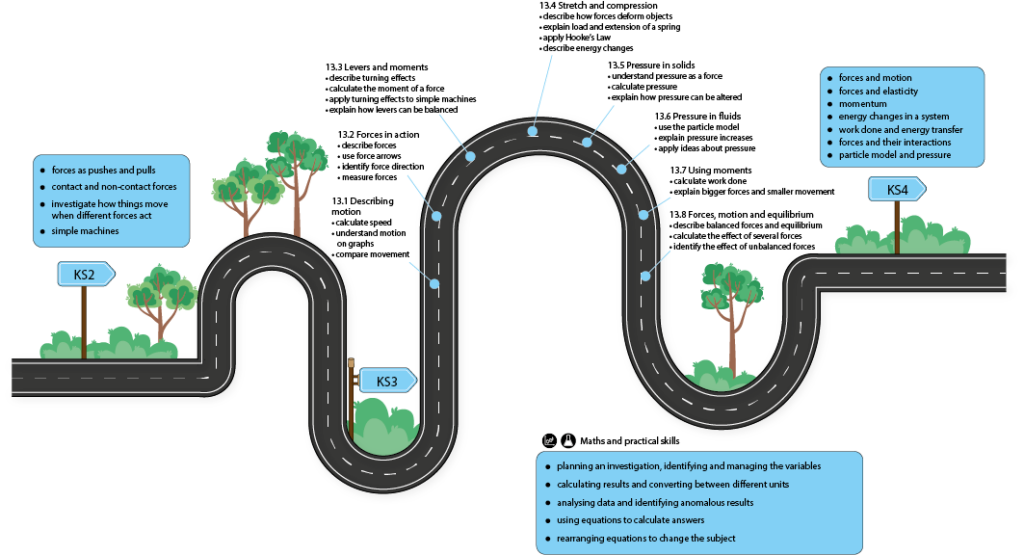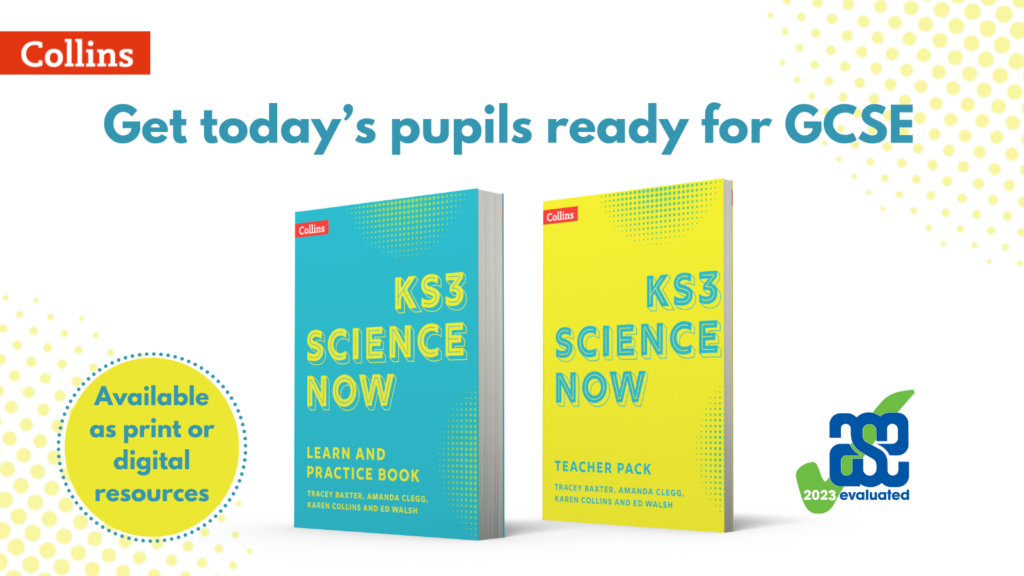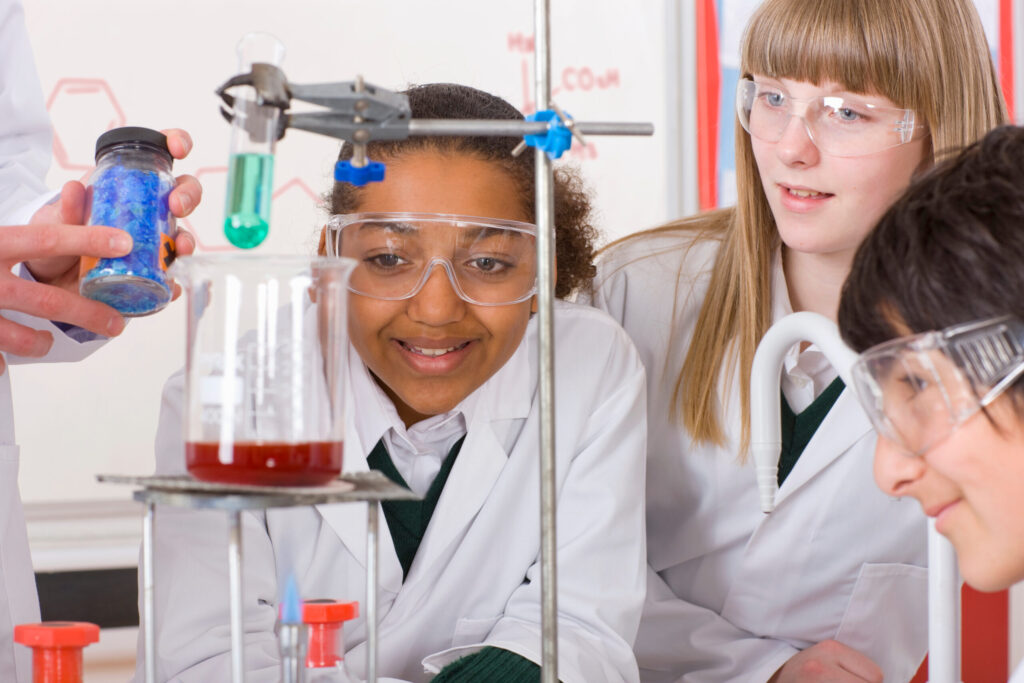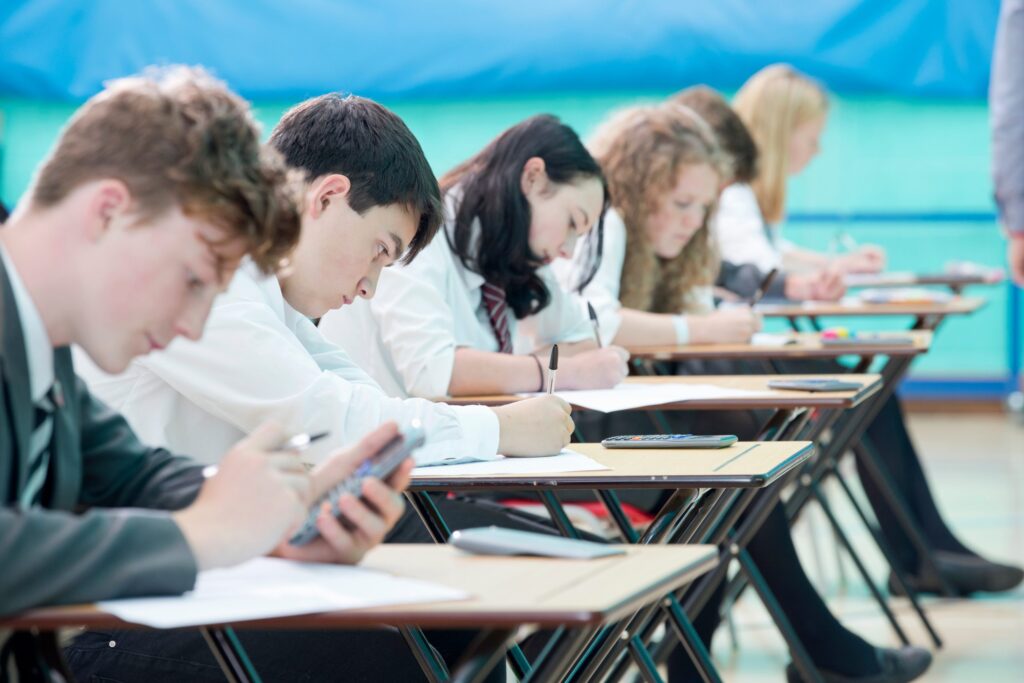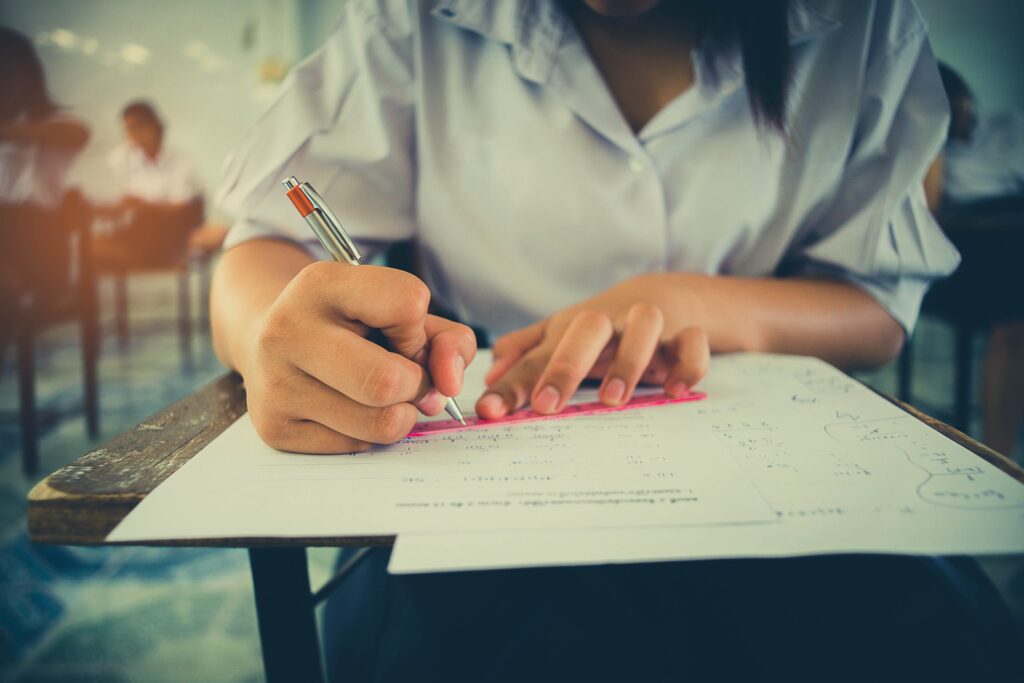By Amanda Clegg and Karen Collins
Did your students struggle to answer practical based questions in the recent GCSE and A level examinations? How many of us have been in a practical lesson where a student has asked ‘Is this right?’ or ‘What do I do next?’ despite having a suitable method? How can we sequence practical skills at KS3 to develop students’ disciplinary and procedural knowledge?
The summer 2022 examiners’ reports from all examination boards highlighted many students’ inability to effectively access practical activities and mathematics in science exam questions at both GCSE and A level. Some key areas of weakness were:
- Understanding hazards and risks
- Identifying variables and their meaning
- Recognising and the correct use of equipment
- Understanding why key steps were being carried out
- Suggesting possible improvement to methods
- Recognising error
- Drawing graphs and interpreting graphs
- Drawing conclusions consistent with the evidence
- Recognising the meaning of key terms such as repeatability, accuracy, and precision
- Converting units and using an appropriate number of significant figures.
This is not a surprise; these issues have been identified in previous examination series. Science departments have spent a considerable amount of time sequencing substantive knowledge. It is now time to approach disciplinary knowledge in the same way.
Practical work can be overwhelming to deliver, particularly if you are new to the profession. Health and safety, behaviour management, availability of materials and their position in the room can all lead to cognitive overload for you leading the lesson. How can we ensure that the students are minds on as well as hands on and are learning from the activity in the same way they would in any other lesson?
Purposeful practical work
How many of us include practical work for motivation and engagement, without considering the other potential purposes? More importantly, how many of us do a practical activity simply because it is on the scheme of work?
The Gatsby Good Practical Science Guide (2017) outlines five purposes of practical work:
- To teach the principles of scientific inquiry
- To improve understanding of theory through practical experience
- To teach specific practical skills, such as measurement and observation, that may be useful in future study or employment
- To motivate and engage students
- To develop higher level skills and attributes such as communication, teamwork and perseverance.
To this we could also potentially add the development of manipulative skills necessary for working safely and collecting accurate and precise data.
The first consideration when designing a practical activity should be its purpose. Why are you carrying out this practical activity? Why is it happening now? What disciplinary, substantive and procedural knowledge do the students need before they start? What disciplinary, substantive and procedural knowledge are you hoping to develop?
Sequencing practical work
We need to know where students are in order to move them forward, taking into consideration the knowledge and understanding covered at KS2. Do you have a baseline assessment at the beginning of Year 7? Does it cover disciplinary knowledge as well as substantive knowledge? Does your baseline test assess what students should be able to do by the end of Year 6 (rather than KS3)?
Let’s consider one aspect of Working Scientifically. Can your students interpret a graph? Do they understand the difference between describing a trend and explaining a trend? Do they use data from the graph when describing and explaining? How could we sequence their learning to develop this skill? How would we ensure all staff are developing this skill across all key stages?
What would this look like:
- in a sequence of lessons?
- over several topics?
- across key stages?
- across Biology, Chemistry and Physics?
KS3 Science Now
KS3 Science Now has been written with a welcome focus on practical and mathematical skills. Road maps, at the start of each unit, in the Learn and Practice book show how the content follows on from KS2 learning and where this journey will continue during KS4. A comprehensive knowledge organiser identifies the essential information required for easy reference. This includes an overview of practical experiments and labelled diagrams of equipment. Mathematics and practical skills have been carefully mapped across the 18 units to ensure good coverage and to reflect their role in supporting a deeper understanding of concepts.
Teachers who contributed to discussions, which helped to shape and refine the structure of the KS3 Science Now materials, requested access to more high-quality questions especially those involving mathematics in science and practical work. Each unit has approximately 35 to 40 questions arranged in three levels of challenge starting with the most accessible first. Worked examples provide supportive scaffolding to guide pupils through the different types of questions before they have a go themselves. Mathematics and practical skills are integrated throughout to help pupils see how they link to substantive knowledge and deepen understanding. Finally, there is a double page spread of relevant stand-alone maths and practical skills questions for each of the 18 units.
Teachers who contributed to discussions, which helped to shape and refine the structure of the KS3 Science Now materials, requested access to more high-quality questions especially those involving mathematics in science and practical work. Each unit has approximately 35 to 40 questions arranged in three levels of challenge starting with the most accessible first. Worked examples provide supportive scaffolding to guide pupils through the different types of questions before they have a go themselves. Mathematics and practical skills are integrated throughout to help pupils see how they link to substantive knowledge and deepen understanding. Finally, there is a double page spread of relevant stand-alone maths and practical skills questions for each of the 18 units.
In summary
You might like to consider developing a policy with your department regarding practical work to address benchmark 1 in the Good Practical Science report.
The Association for Science Education (ASE) has produced some supporting documents to help with this here: https://www.ase.org.uk/content/module-1-introduction
The EEF Improving Secondary Science Review Audit tool is also helpful in stimulating reflection about practical science on page 7. The tool can be found here: EEF_secondary_science_audit_tool.pdf
About the authors
Amanda Clegg is a school improvement consultant and leadership coach with over 30 years of science teaching experience. She is responsible for developing and delivering training resources and coaching programmes for a variety of organisations. Amanda is also a co-author of Collins KS3 Science Now.
Karen Collins is an educational consultant with over 20 years of teaching experience. She has written numerous science resources, including Collins KS3 Science Now and devises and delivers development training to teachers and school leaders.
Prepare today’s pupils for GCSE 9-1 Science with KS3 Science Now
Develop knowledge and build confidence in KS3 Science and help your students become scientifically literate.
You might also be interested in: Empower your students to thrive in a changing world by Ed Walsh

